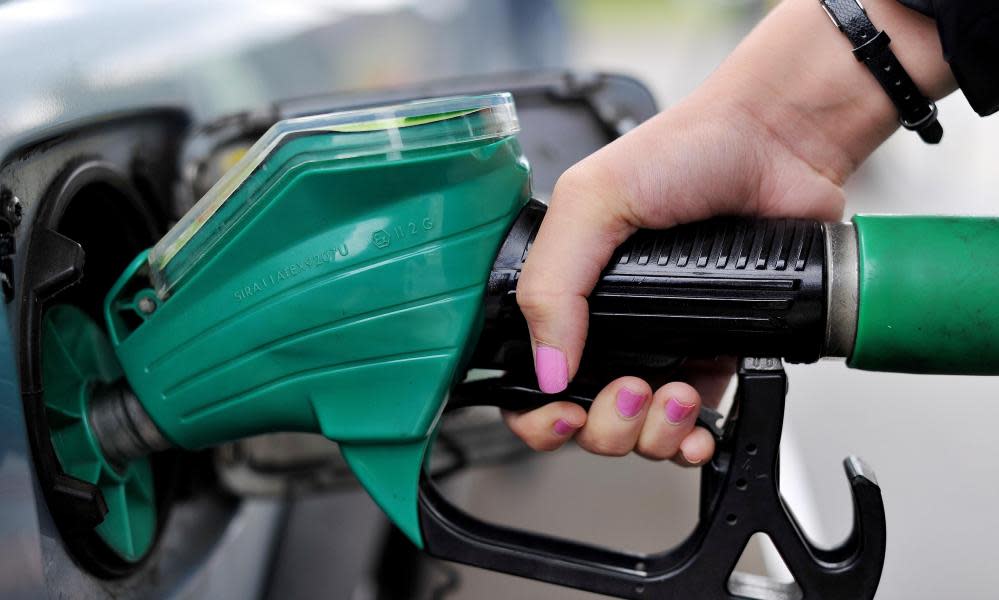UK fuel prices could rise by 3p a litre after North Sea pipeline closure

The RAC has warned British drivers they could be paying 3p a litre more for fuel by Christmas after the shutdown of a major North Sea pipeline hit oil prices.
The warning came as an explosion at a key European gas hub in Austria and disruption to supplies in Norway pushed gas prices to multi-year highs.
The price of unleaded could climb to 123.76p a litre and diesel to 126.21p a litre, the highest since November 2014, the RAC said.
“An increase of up to 3p a litre is very bad news for motorists,” said a spokesman for the RAC. “This closure will inevitably lead to an unwelcome increase in the price with the knock-on effect of raising the wholesale cost of both fuels.”
The closure of the Forties pipeline, after a crack was found in a section of pipe in Aberdeenshire, was followed by an explosion on Tuesday morning at Austria’s Baumgarten gas hub, which killed one person and led Italy to declare a state of emergency over energy supply fears.
Meanwhile, Norway’s Statoil said it was reducing gas flows from Troll, Europe’s biggest offshore gas field, adding upward pressure to gas prices. They had already climbed after the UK firm Ineos on Monday announced a weeks-long closure of the North Sea’s Forties pipeline.
The UK government warned the oil industry against using the Forties pipeline closure to justify putting up fuel prices.
A Department for Business, Energy and Industrial Strategy spokesperson said: “This incident should not have a significant impact on global oil supplies. It is important the oil industry does not use this short-term challenge as an excuse to put up the prices of fuel at the pump.”
The spokesperson added that “short-term spikes in the cost of gas will have a negligible effect on [energy] bills in the future”.
The market intelligence firm ICIS said the incidents, combined with high demand because of cold temperatures, had created a “perfect storm” for rising prices.
The price of a barrel of Brent crude has risen to $65.56, a level not seen since the summer of 2015. In the past fortnight, it has been in the $62-$64 range after Opec and Russia agreed to extend production curbs. UK wholesale gas prices for the day ahead leapt to 90p a therm, a height last reached during a cold snap in 2013.
The UK government said there were no concerns over security of supply, but industry watchers said the supply disruptions would filter down to consumers.
Jonathan Leitch, a research director at the oil analysts Wood Mackenzie, said: “The knock-on effect, because we’ve taken some supply out of the market, that means outright prices go up, which should mean the consumer pays more at the pump for petrol and diesel.”
Ineos said it should know within days if repairs to a crack in the pipeline, which carries 40% of UK oil and gas, would take a fortnight or up to three weeks.
“If it is more than three weeks, obviously the impact becomes deeper,” said Leitch.
The incidents across Europe will not immediately lead to higher gas bills for households, experts said, but could filter through to worse tariffs in the new year as energy suppliers seek to recoup their costs.
“You shouldn’t see a short-term impact [on consumer gas bills],” said Mike Mahoney, associate director at the analysts Cornwall Insight.
However, he said the Austrian gas hub outage could see central Europe competing for Norway’s gas supplies in the new year, pushing up UK gas prices in turn. Norway is the biggest supplier of the 60% of gas that Britain imports.
Mahoney said that security of supply was not an issue but the pipeline shutdown had highlighted the UK’s exposure to price swings after the country’s biggest gas storage site, Rough, closed earlier this year.
“While it’s positive we’ve been able to cover our gas demand on a cold, very high demand day, it shows there’s not a lot of room to manoeuvre when you have a supply disruption. Prices are going to jump significantly,” he said.
A government spokesperson said: “There is no security of supply issue for fuel or gas supplies as a result of the repairs needed to the Forties pipeline.” Richard Harrington, the energy minister, spoke to Ineos on Tuesday morning.
In Italy, gas prices doubled after the fire at Baumgarten, which is a key hub for Russian gas imports to Europe. Gas from Algeria and shipped liquified natural gas were expected to make up Italy’s shortfalls, but Italy’s industry minister, Carlo Calenda, said the incident showed Italy had “a serious supply problem”.
Calenda said his country would not have had to declare a state of emergency if a new gas pipeline bringing supplies from the Caspian sea had been ready. The European Investment Bank’s board was poised on Tuesday to approve a €1.5bn loan to help the Trans Adriatric Pipeline through its final, capital-intensive construction phase.
Follow Guardian Business on Twitter at @BusinessDesk, or sign up to the daily Business Today email here.

 Yahoo News
Yahoo News 
